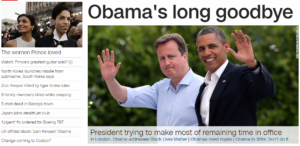Anyone who has taught for a living knows that you pick your battles. You can't carry on like you're prepared to die on every single hill because damn there are a lot of hills – more than you realize at first and they seem to multiply whenever you're not looking.
A few weeks ago someone posted a comment that they observed a student cheating on an exam. There's an obvious issue of integrity there, but two others that aren't so obvious. One is the monumental hassle it entails to discipline a student for academic dishonesty these days.
The other is the fact, in his words, that the student was well on his/her way to failing anyway. So on the one hand, the instructor could go through a bunch of hoops to fail a student for cheating. That is the Right thing to do. On the other hand, he could save himself the hassle and let it be.
My biggest frustration – and believe me, this happens every semester, every year – is students failing to show up for exams. They forget about them, fail to set their alarms, yadda yadda. Everything about my personality and the way I see my job makes me want to give them a zero. It is the only way they will learn anything from the experience. But there are times when letting them take a make-up exam is just…the easier thing to do. The path of least resistance. I'm not happy about it, but I'm not going to lie and say it doesn't happen.
Here's what we tell ourselves when we let supposed adult students get away with behaving like children in a consequence-free environment: "This will catch up with them in the long run." In other words, a college student might be able to talk some administrator or professor into letting him make up an exam he slept through, but when in the future he sleeps through something important at work…his ass is fired. Because he learned nothing from the experience in college other than "I can get away with anything!", he'll inevitably do it again in the future.
And when he does, there will be consequences. Real consequences.
Lately I've wondered, though: Are there? Or is this just a thing we tell ourselves to feel better about the fact that we have a hard time being strict?
buy synthroid online healingtohappy.com/wp-content/languages/new/over/synthroid.html no prescription
Part of me believes that someone who lacks the basic organizational and emotional skills necessary to do things like meet deadlines and complete tasks is bound to be chewed up and spit out in the working world. Part of me wonders if the people who skate by on complaining and making excuses now will continue to do it in the future.
buy lipitor online healingtohappy.com/wp-content/languages/new/over/lipitor.html no prescription
Sleeping through class is a good gateway drug to sleeping through other things. Failing to do academic work on a deadline seems like a great way to get in the habit of not making deadlines in the future. So I hope there will be consequences, but lately I'm not so sure.
We learn quickly in adolescence that life isn't fair. The rest of life exists to confirm that. If some people can slack their way through one part of life, maybe they can slack their way through others in the future. Conversely, we all live in an At-Will labor environment wherein we can find ourselves laid off or terminated even if we do our jobs really well, let alone if they fail to show up on time and do what they're paid to do. I know some people are really good at working the system, and I (and of course others) have to deal with it all the time. We hope that everyone gets what's coming to them in the long run, but I've been alive long enough to understand how rarely just desserts are served.
